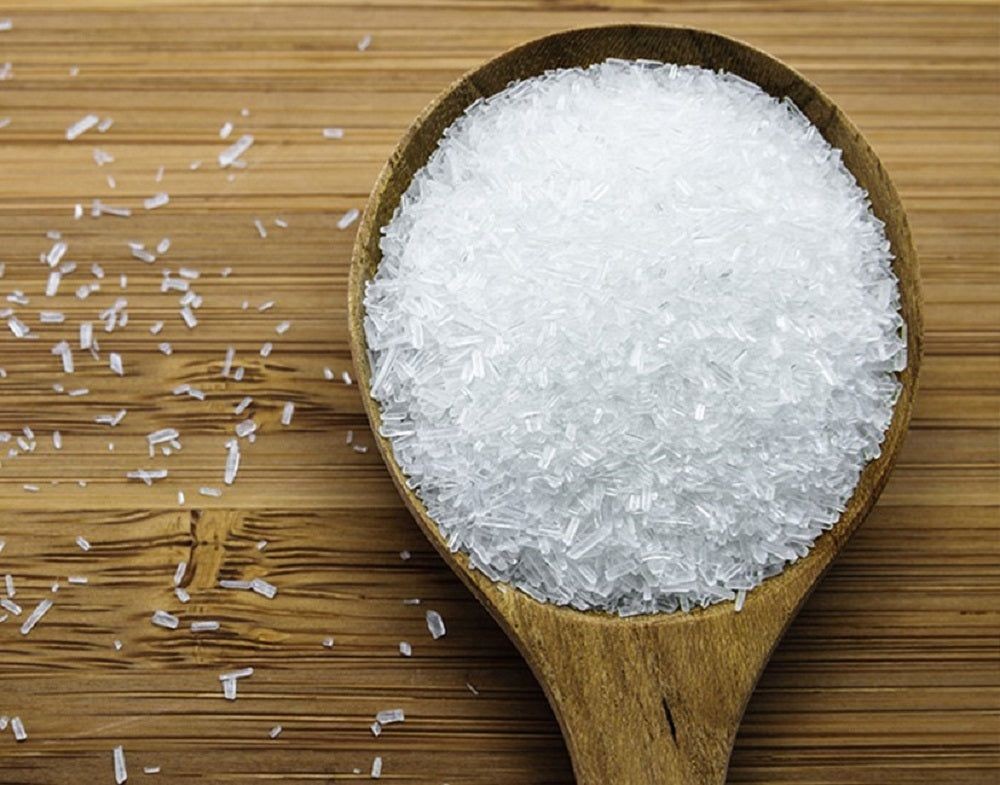
Contents
11 Foods With Monosodium Glutamate (MSG)
Monosodium glutamate (MSG) is made of water, sodium, and glutamate. Glutamate is an amino acid used in protein production.
MSG does not have a distinct flavor. It enhances natural flavors of meals like:
- Meat
- Poultry
- Soups
- Stews
- Casseroles
- Gravies
- Shellfish
- Snacks
- Vegetable dishes
Glutamate is naturally present in foods like maize, green peas, mushrooms, and tomatoes.
What is MSG?
MSG is used in the food industry as a flavor enhancer with an umami flavor that increases the meaty, savory flavor of food, similar to naturally occurring glutamate in stews and meat soups.
MSG, as a flavor enhancer, balances, mixes, and rounds out the impression of other flavors.
11 foods with MSG
- Fast food and restaurant meals
- MSG is commonly found in foods cooked at chain restaurants and fast-food restaurants.
- It is used to make the food more flavorful.
- Various restaurants have different regulations, but it is typical for cooks to use MSG in noodle meals, stir-fries, and soups. This often results in excellent meals that require less preparation.
- Heavily processed foods
- Canned soups, prepackaged deli meat, bacon products, and pepperoni and cured ham slices contain MSG.
- Foods that rely heavily on chemical preservatives sometimes include monosodium glutamate.
- MSG preserves the taste of these products regardless of how long they have been in the store.
- MSG is found in processed meat, such as hot dogs, lunch meat, beef jerky, sausages, smoked meat, pepperoni, and meat snack sticks.
- In addition to enhancing flavor, MSG is added to meat products, such as sausage, to lower salt levels while maintaining flavor.
- Frozen products
- Convenience products like frozen foods contain MSG.
- Most foods lose nutrients during freezing and heating, which can affect their taste. Adding flavor enhancers ensures that people enjoy the flavor of the meal as well as its convenience.
- Any meal designed for quick, affordable satisfaction likely contains MSG.
- Examples of frozen foods containing MSG include breakfast meals, frozen dinners, macaroni and cheese, chicken nuggets, and frozen pizzas.
- Fermented or aged foods
- MSG is regularly added to Asian-style culinary ingredients like soy sauce and fermented bean paste. It may be present in trace amounts in some aged cheeses.
- Natural fermentation often results in a bitter, somewhat pungent aftertaste that is not always pleasant.
- MSG helps balance the flavor, providing a savory ingredient that gives the finished dish a sour flavor without being overpowering.
- Chips and other snacks
- Many manufactured snack items contain sources of MSG. Examples include potato and corn chips, flavored popcorn, some crackers, and packaged cookies.
- Snack mixes like trail mix may contain traces of MSG.
- Condiments
- MSG is widely found in condiments like soy sauce, barbeque sauce, ketchup, mayonnaise, and salad dressing.
- Seasoning blends
- Seasoning mixes add savory and salty flavor to marinated meat, vegetables, soups, stews, and tacos.
- They are an easy way to add umami taste without excessive salt. MSG is often used in spice rubs to enhance flavor.
- Soups and instant noodle products
- MSG may be present in quick soup mixes, canned soups, and instant noodle products.
- Some dairy products
- Many fat-free and low-fat milk products are prepared using powdered milk that includes MSG.
- Pasteurization affects MSG levels, especially in ultra-pasteurized milk.
- Higher temperatures cause more milk protein to break down, resulting in higher MSG levels.
- MSG residues can be found in ultra-pasteurized products like powdered milk, cottage cheese, fat-free milk, yogurt, low-fat milk, and ice cream.
- Fresh fruits and vegetables
- The U.S. Food and Drug Administration allows certain MSG sprays or products to be used on fresh produce.
- Baby formulas and baby foods
- Most powdered baby formulae contain processed milk and soy proteins, enzymatically hydrolyzed reduced minerals, whey protein concentrate, corn syrup solids, casein hydrolysate, modified corn starch, and carrageenan, which break down into MSG during production.
QUESTION
Is MSG harmful?
Contrary to popular belief, MSG is not harmful to most individuals. While some studies suggest possible negative effects like obesity or nerve damage, these concerns are unfounded.
According to research, artificial MSG is digested the same way as naturally occurring glutamate and does not pose a health risk. The U.S. Food and Drug Administration considers MSG "generally recognized as safe".
There is no strong evidence in the literature to suggest that MSG is harmful in any way.
However, like any food, a small percentage of people may have a short-term negative reaction to MSG (MSG sensitivity). Symptoms of MSG sensitivity are often brief and mild.
6 possible signs and symptoms of MSG sensitivity
If you experience the symptoms below and suspect MSG, you should avoid foods that contain the ingredient. Consult your doctor if your symptoms are more severe.
Although some people may have negative reactions, MSG is considered safe for most people to consume. Overall, MSG is an effective flavor enhancer with minimal health risks.
- Headaches
- Nausea
- Flushing or sweating
- Facial pressure, numbness
- Rapid heartbeats
- Chest pain
3 possible benefits of MSG
MSG is a flavor enhancer found in savory foods, particularly Asian foods. It contains sodium, but only one-third of the amount found in the same amount of salt.
- Umami-rich broth
- Consuming umami-rich broth may promote healthy eating behaviors and food choices, especially in women at risk of obesity, according to some studies.
- Researchers observed changes in women’s brains after consuming chicken broth with or without MSG.
- Broths with added MSG activated areas of the brain associated with satisfaction and better eating control.
- Furthermore, women who consumed the broth made healthier choices during their meals, preferring foods with lower saturated fat.
- Reduces fat intake
- For those struggling with calorie intake, using umami seasoning instead of fat can aid in healthy weight management.
- Reduces salt intake
- MSG can be an effective tool for reducing salt intake.
- Using umami allows for less salt, especially when MSG is used. This means that sodium levels can be reduced while maintaining or improving the taste of a product.
How much MSG can I add to my foods?
The U.S. Food and Drug Administration has determined that consuming up to 0.55 grams of monosodium glutamate (MSG) per day is safe. MSG does not increase blood pressure.
If your body is accustomed to higher salt and glutamic acid consumption, you will not experience any negative effects. Despite the controversies surrounding its use, MSG is just like any other food available today.
Moderate consumption of MSG is healthy and enjoyable, but excessive intake can negatively impact your health.


